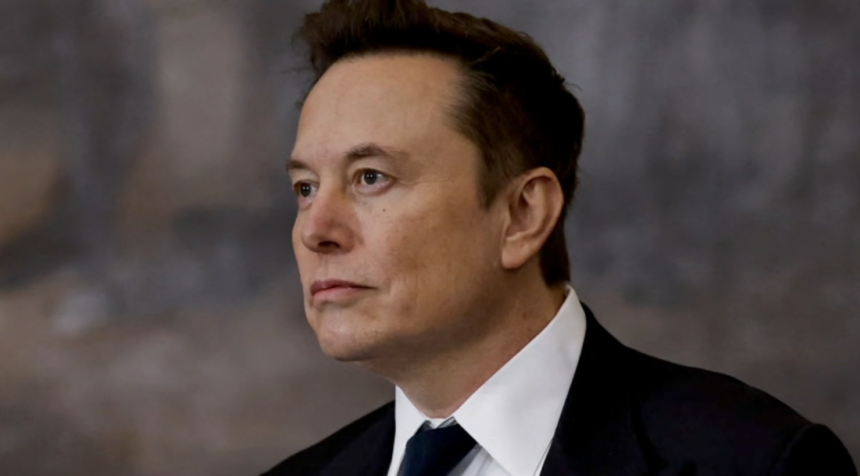Tesla (NASDAQ: TSLA) has long been a stock market darling, known for its high volatility and ability to bounce back stronger after market dips. However, in recent weeks, Tesla’s stock price has faced a significant decline, worrying investors and analysts alike. As of February 12, 2025, Tesla’s stock dropped by 6.3% to $328.50, marking a steady downtrend from its 52-week high of $488.54 in December 2024. Several factors, ranging from CEO Elon Musk’s external business ventures to declining European sales, have contributed to the bearish sentiment surrounding Tesla’s stock.
In this article, we’ll explore the key reasons behind Tesla’s stock decline, the impact of Musk’s OpenAI bid, and what the future holds for Tesla investors.
Tesla’s Recent Stock Performance: A Sharp Decline
In the past five trading sessions, Tesla’s stock has fallen by over 6.3%, leaving investors wondering whether this dip is temporary or indicative of a longer-term trend. The stock currently sits at $328.50, a staggering 32.8% below its 52-week high of $488.54, which was achieved in December 2024.
This decline has put Tesla behind some of its key competitors in the electric vehicle (EV) industry, including Rivian, Ford, and General Motors, who have all shown relative resilience in recent weeks. The downward momentum has fueled speculation about Tesla’s current market position and the impact of Elon Musk’s leadership on the company’s valuation.
Elon Musk’s OpenAI Bid and Investor Concerns
One of the major concerns for Tesla investors revolves around Elon Musk’s recent bid to take over OpenAI. Musk, who co-founded OpenAI but later distanced himself from the company, has reportedly made efforts to reclaim control, leading to concerns that his focus may be shifting away from Tesla.
✔ Musk’s focus on artificial intelligence (AI) could mean fewer resources and time spent on Tesla’s core operations.
✔ Tesla’s AI and autonomous driving efforts could take a backseat if Musk redirects his attention toward OpenAI.
✔ Investors are questioning whether Musk’s leadership at Tesla is stable or if his diverse business interests (SpaceX, Neuralink, xAI, and now OpenAI) could dilute his effectiveness as Tesla’s CEO.
As analysts have pointed out, Musk’s involvement in multiple ventures simultaneously could result in Tesla’s growth slowing down, ultimately hurting shareholder value.
European Sales Drop Amid Political Controversy
Another critical factor affecting Tesla’s stock price is its declining sales in Europe. Recent reports indicate that Tesla’s sales in key European markets, including France and Germany, have plummeted by over 60%.
✔ France: Sales down 63% in January 2025
✔ Germany: Sales down 59.5% in January 2025
The decline is being attributed to growing backlash against Elon Musk’s political stance. Musk’s open support for certain political figures has led to negative brand perception in some European markets, causing potential customers to switch to competitors like Volkswagen, BMW, and Hyundai.
Additionally, European government incentives for EV buyers have shifted, making Tesla’s vehicles less attractive compared to local automakers who still benefit from subsidies.
Tesla’s Global Sales and Market Competition
While Tesla remains a dominant player in the EV space, the competition is getting fiercer with each passing quarter. Legacy automakers and new EV startups are catching up quickly, offering more affordable and innovative electric vehicle options.
✔ China remains Tesla’s largest market, but local competitors like BYD are expanding rapidly.
✔ Ford and GM’s latest EV models have gained significant traction in North America.
✔ Rivian and Lucid Motors are growing their market share in the premium EV segment.
Despite the competition, Tesla is still the market leader in global EV sales, but the gap is narrowing as other brands roll out new models with competitive pricing and better features.
Analyst Ratings and Tesla Price Target Revisions
Many Wall Street analysts have revised their price targets for Tesla stock following the recent decline.
✔ Stifel analyst Stephen Gengaro cut his price target from $492 to $474, citing brand perception concerns and mixed Q4 earnings.
✔ Goldman Sachs maintains a “Hold” rating on Tesla, predicting more stock volatility in the coming months.
✔ Morgan Stanley remains bullish, expecting Tesla to bounce back due to its dominance in AI-driven self-driving technology.
The overall analyst consensus remains mixed, with some experts forecasting a rebound while others see further downside risk if Tesla’s sales do not recover in Q1 2025.
What’s Next for Tesla Stock?
While Tesla’s recent stock performance has raised concerns, the company still has strong fundamentals and a loyal investor base. The key question remains: Will Tesla bounce back, or is this the start of a prolonged downturn?
Potential Catalysts for a Tesla Stock Rebound:
✔ Expansion of Full Self-Driving (FSD) Software – Tesla continues to develop its AI-driven autonomous driving system, which could unlock new revenue streams in the future.
✔ Upcoming Tesla Cybertruck Deliveries – Tesla’s delayed but highly anticipated Cybertruck is expected to begin mass deliveries in 2025, potentially boosting sales.
✔ New Model Lineup – Reports suggest Tesla is working on a more affordable EV model, which could help it compete with lower-priced rivals like BYD and Ford.
Potential Risks for Further Tesla Stock Declines:
✔ Declining demand in key markets like Europe and China could hurt revenue growth.
✔ Increased competition from automakers like Rivian, Ford, and BYD threatens Tesla’s market dominance.
✔ Elon Musk’s focus on OpenAI and other projects could lead to further investor skepticism about his leadership at Tesla.
Investor Takeaway: Is Tesla Stock a Buy, Hold, or Sell?
Tesla’s recent stock drop presents both risks and opportunities for investors. While the short-term outlook appears uncertain, Tesla still has a strong market position, cutting-edge technology, and ambitious growth plans.
✔ For long-term investors, this dip may present a buying opportunity, especially if Tesla continues to innovate in AI and autonomous driving.
✔ For short-term traders, volatility is expected, and further declines are possible before a potential rebound.
✔ For cautious investors, waiting for Q1 earnings and further developments on Musk’s OpenAI bid might be the best strategy.
Regardless of the current market fluctuations, Tesla remains one of the most closely watched stocks on Wall Street, with the potential for massive upside or further downside risks depending on upcoming developments.
Final Thoughts: Should You Be Worried About Tesla Stock?
While Tesla’s stock has taken a hit, the company’s long-term growth prospects remain strong if it successfully navigates competition, brand perception challenges, and Elon Musk’s external business distractions.
✔ The stock’s current price decline is concerning but not necessarily a long-term trend.
✔ If Musk refocuses on Tesla and resolves concerns over OpenAI, investor confidence could return.
✔ Tesla’s Q1 2025 performance and delivery numbers will be key indicators of its future trajectory.
As always, investors should conduct their own research, assess risks, and stay updated on Tesla’s latest developments before making investment decisions.






